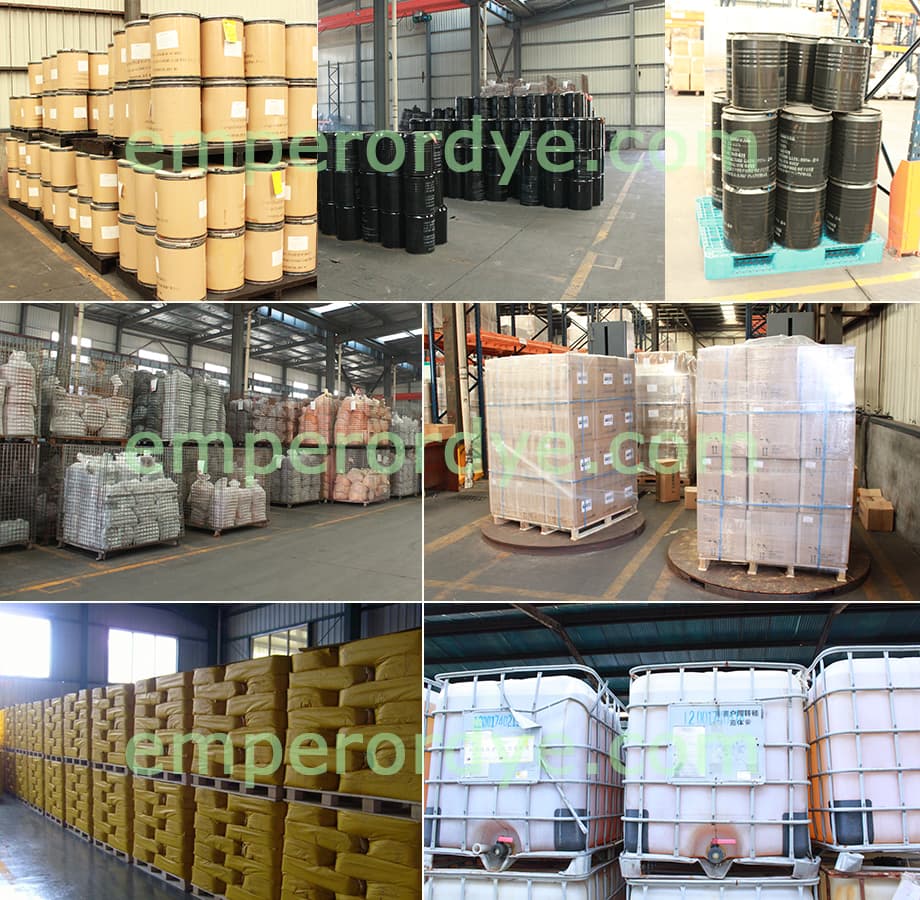Application and parameters of Sulphur Blue 7
Sulphur Blue 7
- TRADE NAME:
- Sulphur blue BRN
- Sulphur Blue B
- Solubilised Sulphur Blue BRN
CAS NO: 1332-88-3
CI.NO: 53441
Sulphur Blue 7 Physical and Chemical properties
|
Acid Resistance |
4 |
|
Alkali Resistance |
4-5 |
|
Light Fastness |
4-5 |
|
Fulling |
3-4(Alkali) |
|
Persperation Fastness |
4-5 |
|
Soaping(Moderate) |
4 |
|
Soaping(Severe) |
3 |
Application Features
|
Dyeing method |
Dyeing temperature (℃) |
Amount of sodium sulfide (double) |
Dyeing rate |
Exhaustion rate |
Oxidation method |
Reducing body color |
Color change after fixing copper sulfate |
|
Dip dyeing, dyeing,Sulphur |
60~80 |
1.5 |
well |
well |
Air or sodium perborate |
greenish gray |
Turn red |
Colour Fastness Test
|
Sun exposure |
Flooding |
Perspiration |
Rubbing |
|||||
|
1/3depth |
standard depth |
1/2depth |
original change |
white fiber stained |
original change |
white fiber stained |
dry |
wet |
|
3~4 |
5 |
6~7 |
4 |
5 |
3~4 |
5 |
4~5 |
2 |
|
Acid, alkali,Sulphur |
Soaping(40℃) |
Soaping(95℃) |
Ironing |
|||||
|
acetic acid |
soda ash |
Sulphur |
original change |
white fiber stained |
original change |
white fiber stained |
original change |
|
|
4 |
4 |
4 |
3~4 |
3 |
3 |
3 |
4 |
|
Sulphur Blue 7 (Sulphur blue BRN) alias vulcanized and light-resistant blue.
The dye strength is 150%, the appearance is a navy blue uniform powder, the color light is similar to the standard product, the fineness (80 mesh sieve residue) ≤ 5%, the moisture ≤ 5%, the strength is standard 100% ±3% of the product. Free sulfur content ≤1.0%.
Sulfur blue is insoluble in water, soluble in sodium sulfide solution is greenish brown, blue-purple in concentrated sulfuric acid, dark blue precipitate after dilution.
All in sodium hypochlorite solution Faded, dark purple in the presence of concentrated sulfuric acid.
Sulphur Blue 7 Use condition
1. Sulphur blue BRN is suitable for the dyeing of cotton, hemp and viscose, and also for the dyeing of cotton blended fabrics.
2. The color of the dyeing is bright, Sulphur blue 7 is dissolved by hot alkali sulfide, the temperature is 60~70 °C, the leveling property is medium, and the pH value is preferably 8.5~9.
3. After dyeing, oxidize with air or sodium perborate.
4. When dyeing cotton blended fabrics, vinylon is darker and redder than cotton.
5. the Sulphur Blue 7 is Poor stability when dyeing, easy to oxidize to produce red edges, crosspieces, erythema, etc. When dyeing cotton cloth, add baking soda (40%~60% of 50% sodium sulfide) to help dye reduction The color is more vivid, which can save about 10% of the dye, and can eliminate the red edge rickets. The baking soda should be added at a temperature less than 50 °C to prevent foaming and overflow of the dye.
6. When using the continuous cylinder, add 10~18g/L salt in the dyeing bath to make full use of the dye. The cloth should be kept flat when rolling, and twice the dye amount of glucose can be used as the reducing agent. Then, 500 g of sucrose and 180 g of sodium sulphide were used to prepare a 100 L solution, and watering was performed to improve the premature oxidation phenomenon.
7. If the reciprocating dyeing machine or hand-dyed cyan yarn is used, the amount of vulcanized alkali should be increased. The dyeing process should not be too fast, and the oxidation should not be too fast. Immediately after dyeing, the dyeing residue should be washed with water. Alkali.
8. Hand-dyed yarn, the bath ratio is as large as possible, and Sulphur blue BRN is better to completely immerse the cotton yarn in the dye liquor.
9. After dyeing, if you use hydrogen peroxide or sodium perborate as oxidant, you can get more vivid colors, but the wet processing fastness is poor, the soaping fastness is also reduced, and the color light is also red. Treating the dye with fixing agent can improve the washing Degree and light fastness, but the shade is slightly darker.
10. Vulcanized and light-resistant blue is mainly used for the dyeing of navy in corduroy. Sometimes it is also added with a small amount of vulcanized yellow brown or yellow to dye dark gray.
Precautions
Sulphur Blue 7 is easy to absorb the moisture in the air and deliquesce agglomerates and oxidizes and deteriorates. It should be stored in a ventilated and dry place. This dye is a banned dye. It can be replaced by vulcanized dark blue 3R.
Sulphur Blue 7 Application:
Mainly used for cotton, hemp, viscose fabric dyeing, and can also be used to top and viscose fiber protoplasmic coloring. Sometimes also used in leather and paper dyeing.
Packing:

20 or 25kg/compound bag, carton box, iron drum, fiber durm for powder dye and 1000kg/tank for liquid dye
- Inquiry for Sulphur Blue 7
- Question: *
- You can learn about other products:
- Sulphur Blue 13
- Sulphur Blue 15
- Sulphur Black 1
- Sulphur Brown 10
- Sulphur Blue 5
- Sulphur Green 14
- Sulphur Yellow 9
- Sulphur Yellow 2
- Sulphur Red 14
Products Catalog
- solvent red 24
- solvent red 49
- solvent red 122
- solvent red 111
- solvent red 146
- solvent red 195
- solvent yellow 21
- solvent yellow 33
- solvent yellow 93
- solvent yellow 98
- solvent yellow 114
- solvent orange 60
- vat red 41
- solvent green 3
- solvent green 5
- solvent blue 70
- solvent blue 104
- solvent black 3
- solvent violet 31
- solvent violet 13
Copyright right HANGHZOU EMPEROR CHEMICAL CO,,LTD © 2019 All rights reserved.

 Pусский
Pусский